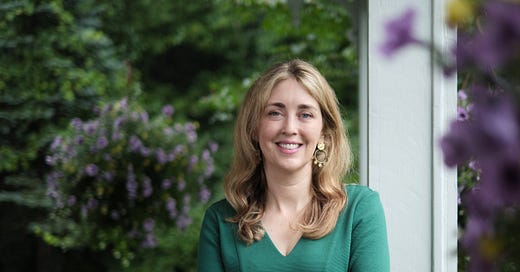Social scientists file amicus brief in support of Roe precedent
154 economists and experts lay out the case for how abortion access benefited women economically and educationally
(Dr. Caitlin Myers, one of the amici on a brief filed in the Dobbs case)
More than 150 economists and researchers filed an amicus brief in support of abortion rights in the Dobbs v. Jackson Women’s Health Organization case that will possibly determine the future of the Roe v. Wade precedent.
The social scientists argued that abortion access had decreased teen pregnancy and economically and educationally uplifted women across the country. They argued abortion access was central to women’s advancement professionally and socially in the last 50 years. Dr. Caitlin Myers was one of the Amici.
“We have a lot of evidence on how legal abortion has shaped women's lives,” Myers said. ‘We know that in the Roe era, it dramatically reduced teen motherhood and teen marriages.
“We know that in the Roe era led it allowed women, who otherwise would have had their lives look very different due to unintended pregnancy, to seek an abortion and complete their schooling. They are in different occupations and are less likely to be in poverty. We see that play out.”
The state of Mississippi argued in its brief that advances in contraception have reduced the need for abortion. Myers and the other intellectuals said there was still a need for it because unwanted pregnancies still happened with frequency.
“A large fraction of American women obtain abortions in the reproductive lifetime,” Myers said. “So if somebody has the idea that this is rare, there's simply wrong.”
Myers’ brief also deals with transportation barriers among poor women. While white people who have access to cars will suffer less, those without a vehicle to get to and from a clinic a far distance away from their home may have to resort to other means of controlling their fertility. Therein lies the danger and possibility of a return to dangerous abortifacients or methods of terminating pregnancies.
We know that a lot of them don't get there,” Myers said. “The travel distance is an insurmountable barrier to a significant fraction of people seeking abortions.”




